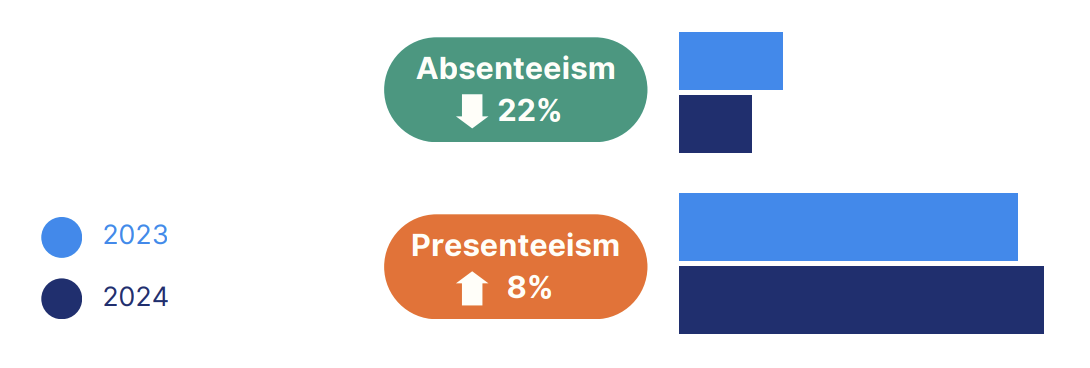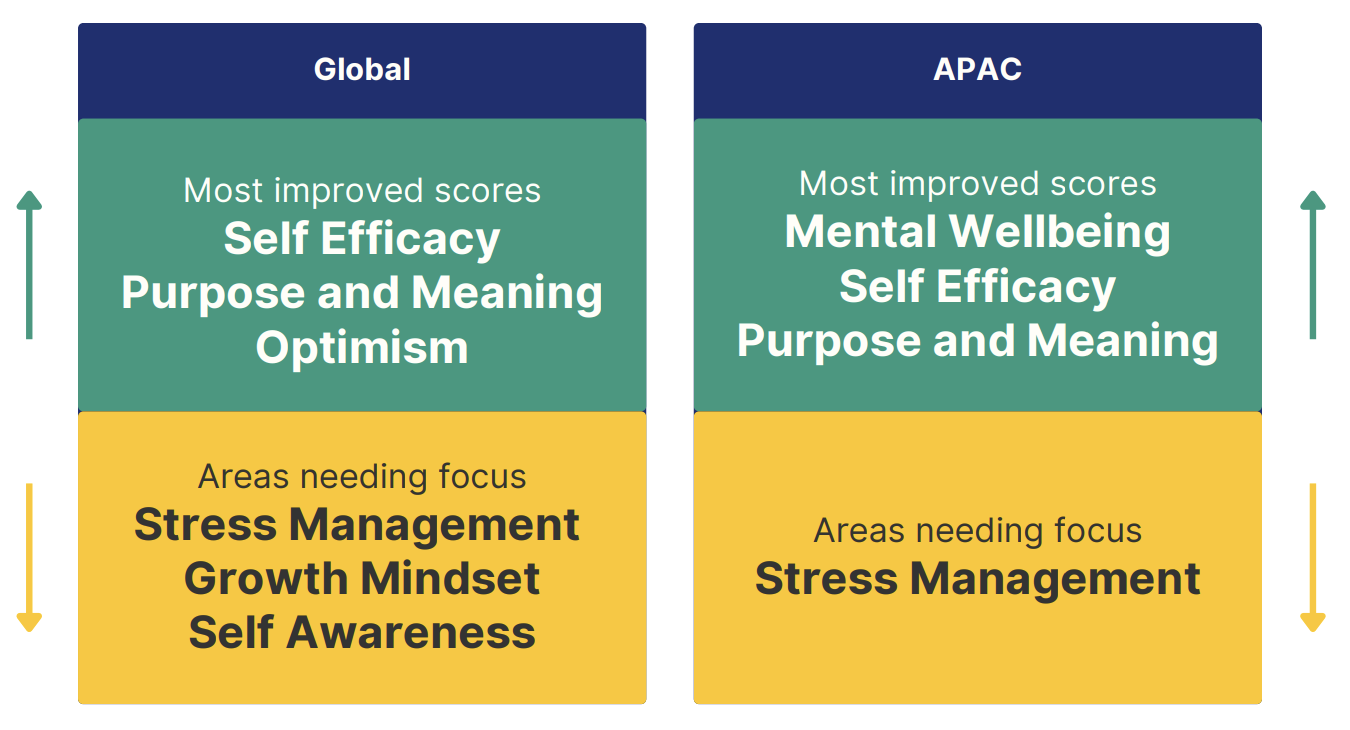
Employers urged to go beyond 'tokenistic' initiatives to help employees thrive

Despite employees reporting to work more, a new report has warned that they may not be fully productive as presenteeism went up in the past year.
Findings from Intellect found that absenteeism went down by 22% in 2024 to reach 7.69%.
On the other hand, presenteeism among employees went up by eight per cent to hit 41.2% in 2024, making it five times more likely to occur than absenteeism.
According to the report, the industries with the highest presenteeism include:

"Despite fewer health-related absences, employees may not be fully productive at work," read Intellect's report.
Aside from productivity, the report warned that presenteeism may also cost employers more than absenteeism.
It noted that absenteeism averages $318 per employee per month, while presenteeism costs $990, around three times as much.
"This highlights that presenteeism is not only more prevalent but also a significantly greater financial burden on organisations," the report read.
According to the report, employees feel compelled to report to work even with a supportive workplace culture because of the following reasons:
Theodoric Chew, chief executive officer and co-founder of Intellect, also has a theory that employees like to believe that they are fine despite reduced focus and energy.
"Our study uncovered global deficits in Self Awareness and Stress Management skills, potentially leading to passive coping behaviours such as procrastination, disengagement, or avoidance of challenging tasks — all of which contribute to presenteeism," Chew said in the report.

Chew said employers that invest in support systems, initiatives, and programmes that help employees feel valued will ultimately create healthier workplaces.
"Workplace wellbeing programmes must be comprehensive, going beyond tokenistic initiatives and fostering environments where employees can truly thrive — not just show up," he said.